If we hire them, they will come: The demand side of border security
/https://static.texastribune.org/media/images/2016/12/02/BSP-PullFactors-Lead.jpg)

Businessman Thomas McNutt’s run for political office began as a classic tale of an upstart young conservative taking on the Texas political establishment.
It was among the most closely watched primaries for Texas House seats this year, and for good reason: McNutt was mining the same bubbling outrage over the porous border and illegal immigration that fueled the rise of Donald Trump. And his opponent, powerful GOP incumbent Rep. Byron Cook, was a top target of the immigration hardliners.
Cook has been a supporter of the long-standing state policy allowing young undocumented immigrants to pay in-state college tuition rates. He chairs the important House committee where, in 2011, a ban on so-called sanctuary cities fizzled out amid opposition from major business figures. Then last year, he authored a bill that would have let thousands of people living here illegally drive their vehicles legally. (They still can’t.)
Cook “supports illegal immigrants,” McNutt claimed in a February interview in the Palestine Herald newspaper, right before the two Corsicana businessmen squared off in the March Republican primary.
“I am offering the voters in our district a conservative choice who will fight to stop illegal immigrants from entering our state,’’ he said.
It was a solid political strategy, save for one problem.
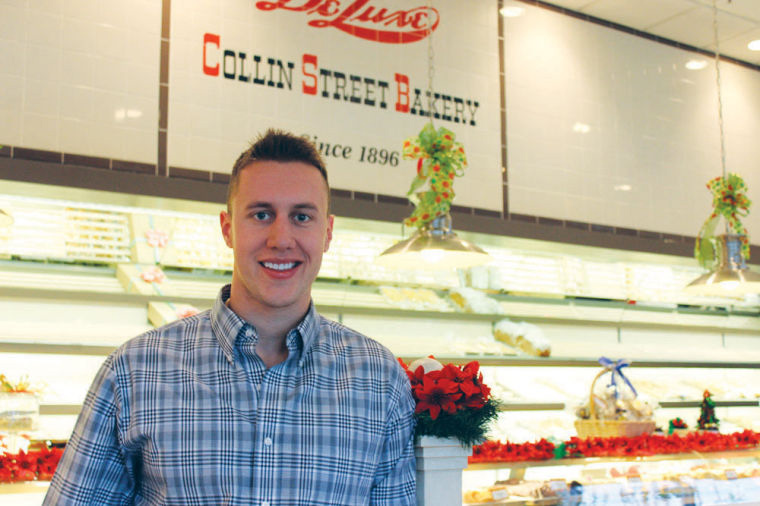
The famous company McNutt’s family owns and operates — Collin Street Bakery in Corsicana — had itself hired undocumented immigrants, according to news reports and Texas Tribune interviews. And when some of them began speaking out, the dynamics of the race shifted.
Illegal immigration and border security remained the top issues, but the focus moved from Cook’s voting record to McNutt’s alleged hypocrisy.
“He says he’s for border security,” an announcer mockingly intoned in a negative ad aired against McNutt. “But his bakery hires cheap illegal workers.”
When the smoke cleared on the March 2016 primary, Cook had eked out a victory, winning by a little more than 200 votes.
Not surprisingly, McNutt and the workers see things differently today — each pointing fingers at the other.
Beyond the particulars of the case, though, the controversy reveals a fundamental truth about illegal immigration and the nation's collective failure to stop it. No matter how many hurdles are erected at the border, once immigrants get past them they find plentiful jobs — and often exploitation — in the nation's workplaces.
The Texas Legislature’s almost $800 million border security apparatus — not unlike the one developed in Washington, D.C., the town Texas politicians love to bash — relies on stopping the supply of uninspected people and drugs. It’s all about boots on the ground, assets in the air, boats in the water.
But addressing the country's demand for cheap labor and drugs? Or its role in supplying the weapons drug cartels and smugglers use to protect their loads? Not so much.
It’s not a minor flaw in the strategy. The steady demand for people and illegal products nourishes a giant international smuggling ecosystem. And until policymakers reduce American demand for Latin American supply, experts say the 2,000-mile U.S-Mexico border will remain porous.
“You can only do so much at that border,” said Jerry Robinette, former special agent in charge of Homeland Security Investigations in San Antonio. “You could never have enough enforcement personnel to deal with this as long as that magnet or that attraction is still there.”
Demand side failures
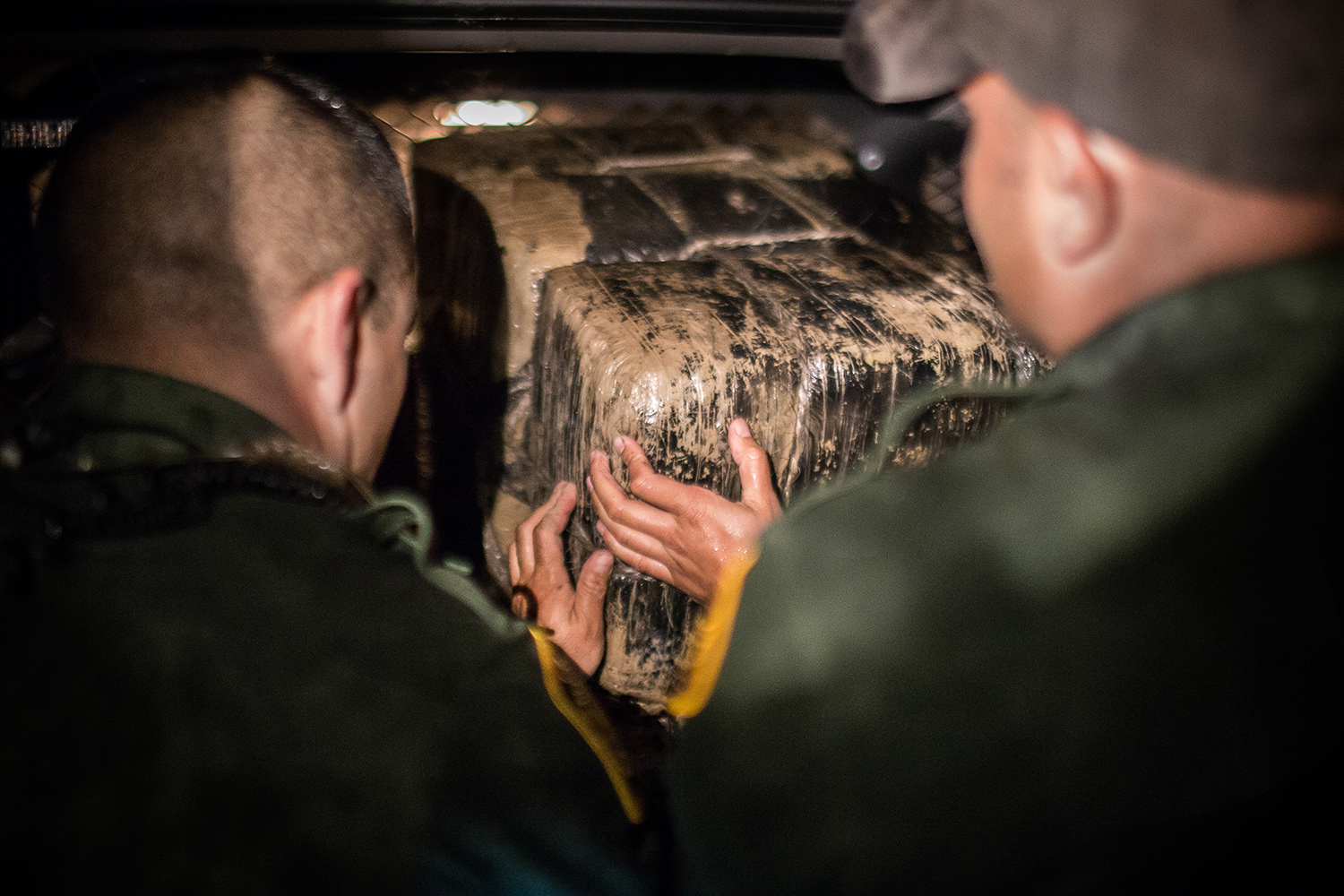
The systematic failure to confront demand for foreign workers and illegal drugs is neither new nor confined to Texas.
Despite the untold billions spent worldwide trying to reduce the supply of illegal narcotics, the United Nations’ 2016 World Drug Report found that more people than ever are addicted to them, yet only one in six problem drug users has access to treatment. In the United States, 5 percent of the world’s population is consuming 80 percent of the opioids, and in cities like Dallas, first responders get more emergency calls for overdoses than for fires.
“We have an insatiable demand for drugs in this country. We are the largest market in the world,” said William Kelly, founding director of the Center for Criminology and Criminal Justice Research at the University of Texas at Austin. “And the reason the cartels and other organized criminal enterprises dealing with drug crimes or drug transportation are so successful is because there is so much money to be made.”
On the employment front, look no further than the U.S. House of Representatives, where Republicans have yet to use their sizable majority to pass U.S. Rep. Lamar Smith’s proposal to make electronic employment verification (E-Verify) mandatory for most U.S. employers. The San Antonio Republican has proposed it year after year, but his own GOP House leaders have never put the bill on the floor.
Asked why several months ago, he said, “that you would have to talk to Republican leadership about.” AshLee Strong, a spokeswoman for U.S. House Speaker Paul Ryan, did not directly answer why the bill has never been taken up in the chamber but said, "House Republicans will be working closely with the Trump transition team on policies to better enforce our laws." She referred questions about scheduling future E-Verify bills to the office of House Majority Leader Kevin McCarthy, R-California. McCarthy's office did not respond to email inquiries from the Tribune.
Democrats have generally opposed expanding E-Verify if it’s not paired with comprehensive immigration reform that would legalize millions of unauthorized immigrants.
Trump advocated expanding E-Verify, and his top immigration adviser told Bloomberg BNA after the election that making it mandatory was on the “to-do list.” If that happens and is backed up with real enforcement, the reforms would represent a sea change in the traditionally soft approach to immigrant hiring practices in Congress and the federal bureaucracy.
It’s been just as lax in the traditionally pro-business Texas Legislature, where adding new regulations for employers is about as welcome as the bubonic plague.
What is new, politically speaking, is that tough and even strident talk on border and immigration issues is moving American voters like never before, and hard-liners like Trump and Texas Lt. Gov. Dan Patrick have risen to power in part by promising to at last “secure the border.”
Texas has set itself apart from all other states by putting taxpayer money where the politicians’ mouths are, allocating $800 million over the 2016 and 2017 fiscal years to stop migrants and drugs from crossing into the United States.
But more than a year after the program was launched, statistics and news reports have questioned the effectiveness of a strategy that has produced little visible impact in the vast market for illegal drugs and labor. A KXAN investigation called “Border Splurge” found that only 6 percent of the border-area arrests involved felony drug cases and less than 1 percent involved human smuggling.
Lawlessness in the workplace
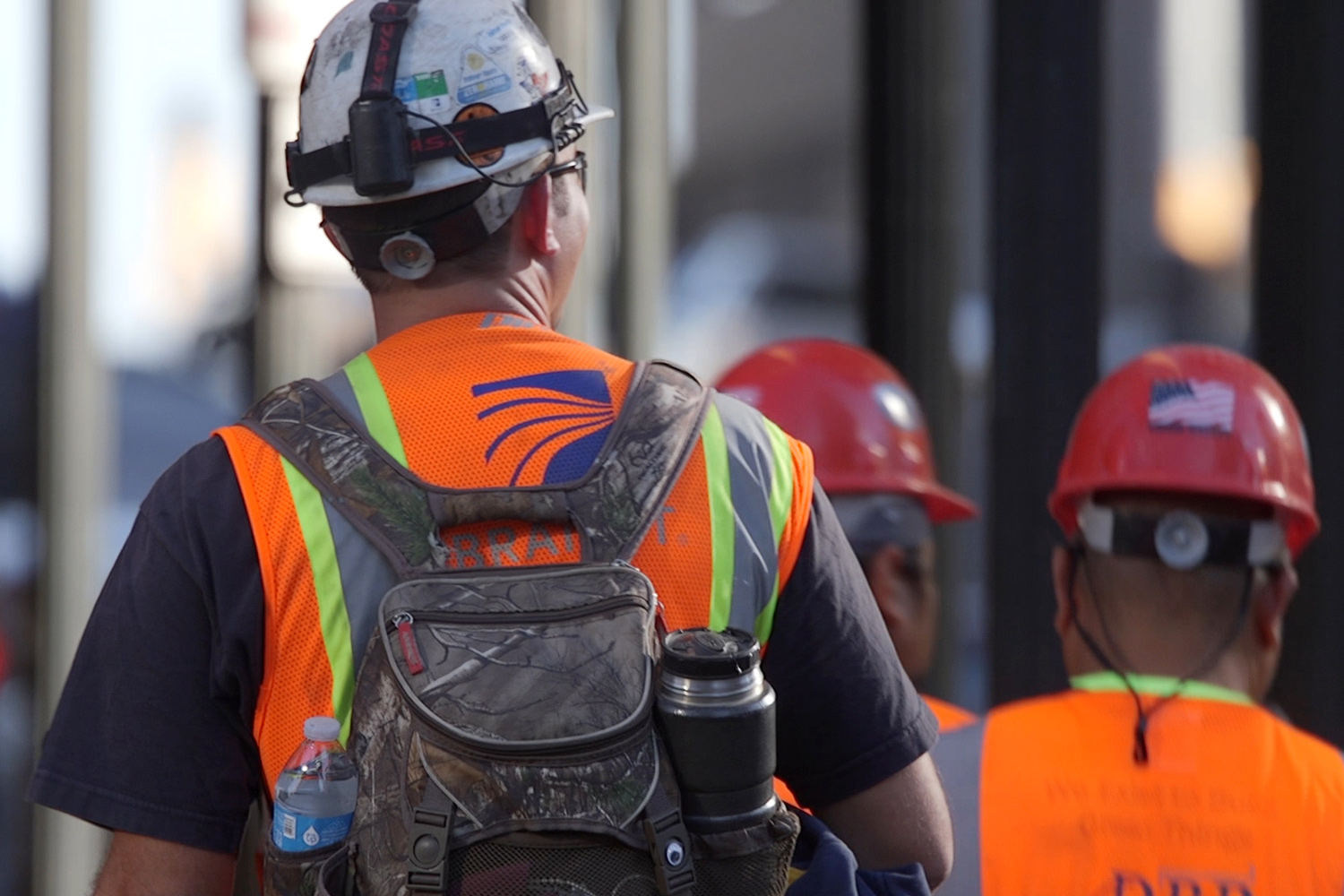
The outrage over lawlessness at the border generally stops at the doors of the American workplace.
Knowingly employing people without work authorization became a federal crime in 1986, but Congress inserted a major loophole into the law. It doesn’t require employers to vouch for the authenticity of the documents job applicants show them when filling out the I-9 form, which is supposed to help screen for undocumented workers.
Though some employers no doubt innocently hire people without knowing they’re undocumented, in many industries skirting the law has become a way of life.
“Overwhelmingly, the employer knows,” said Bill Beardall, whose Equal Justice Center in Austin represents undocumented immigrants when they inevitably get exploited and ripped off. “It has given rise to a don’t-ask-don’t-tell policy.”
The Pew Research Center estimates undocumented immigrants represent 5 percent of the civilian workforce. But they are heavily concentrated in industries such as agriculture, food preparation/service, construction, hospitality and janitorial services. Half of all crop workers are undocumented, the government estimates. Closer to home, researchers at the Workers Defense Project and the University of Texas at Austin reported in 2013 that half of the workers they surveyed at Texas construction sites were here illegally.
Sensational workplace raids or investigative news reports occasionally pull back the curtain on the vast underground of illegal employment, whether it’s at meatpacking plants of the American Midwest or the checkout lines at Chipotle restaurants and Subway franchises. During the 2016 presidential contest, news reports surfaced about the undocumented Polish immigrants who helped build Trump Tower in Manhattan and the Latin American immigrants — some of whom told the Washington Post they were in the country without authorization — who worked on the president-elect’s newest hotel in Washington, D.C. Even the billionaire politician’s foreign-born wife, Melania Trump, was said to have worked illegally in the United States.
Over the years, legislative efforts to crack down on the workplace have met fierce resistance from business interests, often in conjunction with liberal civil rights groups and worker advocates.
As a result, the chances of actually getting caught hiring — or working as — an undocumented immigrant remain remote. According to a 2015 study by the Congressional Research Service, only .02 percent of U.S. employers are subjected to a “final order” requiring them to pay a civil penalty. Meanwhile actual arrests of both undocumented workers and their employers (representing both administrative and criminal violations) “plummeted between 2008 and 2009,” and since 2011 there’s been a “steady decline” in them, the study found.
“[Immigration and Customs Enforcement] administrative and criminal arrests in worksite enforcement operations represent a very small percentage of the potential population of violators,” the Congressional Research Service report concluded. There’s even less workplace oversight emanating from the border security-obsessed Texas Legislature, where bills to expand E-Verify to the private sector didn’t even get a public hearing in 2015 and the minimal hiring controls adopted for state government have no enforcement mechanism.
“The chances of being caught are very small, very slim,” said Robinette, the former Homeland Security Investigations chief in San Antonio. “If you can make it into the [U.S.] interior and you stay out of trouble, you’re not going to really pop up on anybody’s radar.”
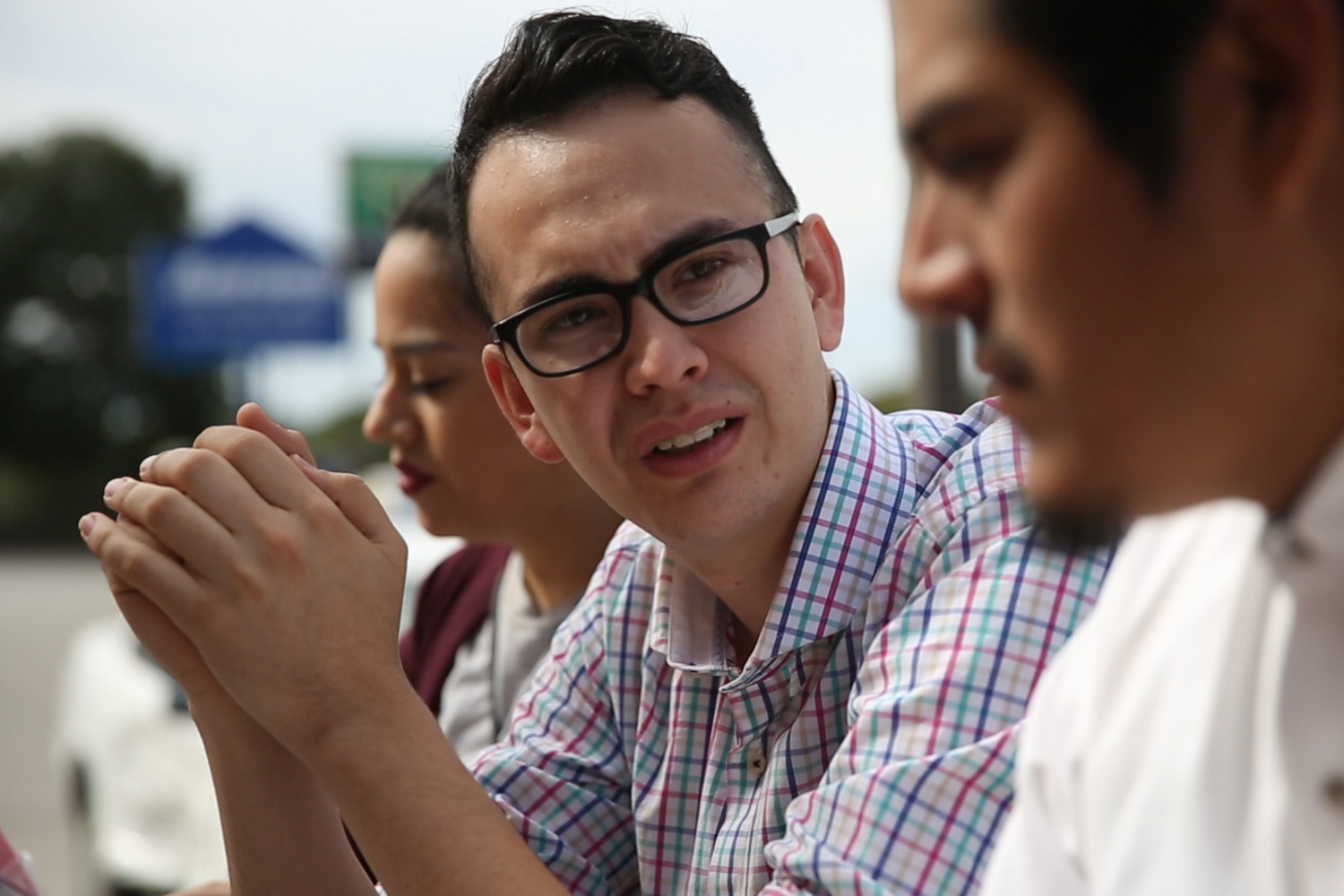
Even in the town of Corsicana, population 24,000, which sits in a Texas county Trump won with 73 percent of the vote, illegal employment is widespread and tolerated, according to Jose Manuel Santoyo, one of the young Mexican immigrants who worked at Collin Street Bakery.
Santoyo, who came to the United States when he was eight, said he’d worked at local franchises for Sonic, McDonalds, Home Depot and other places before working at the bakery.
“Corsicana has a big undocumented population at the moment,” he said. “This is a place that hires a lot of undocumented immigrants.” He said they find out about job opportunities mostly through word of mouth. That’s how he got the job at Collin Street Bakery.
“I found that job through a friend from college,” Santoyo said. “He told me, ‘You know what? They will hire anybody.’ He literally said it like that.”
Santoyo said he felt compelled to speak out about his bakery job after McNutt began putting immigrants in the political crosshairs in his House race — a move Santoyo called hurtful and “hypocritical.”
In an email sent to the Tribune, McNutt blamed the media for spreading “baseless attacks” and notes he wasn’t working at the bakery at the time the undocumented workers were hired. He also pointed out the company now uses the voluntary federal program that lets employers electronically check the legal status of job applicants.
“These individuals either were legal at the time and have since overstayed their welcome, or they forged government documents, breaking the law,” McNutt said. “In order to protect our company from other fraudulent individuals getting into our business, the Collin Street Bakery has implemented E-Verify, going above and beyond what the law requires to ensure only legal residents are hired.”
Whether unwittingly or knowingly, though, employers across Texas and the nation provide jobs to immigrants. And the gap between the paltry pay immigrants get at home and what they receive here — even if they’re exploited along the way — amounts to what renowned Harvard economist George Borjas calls “the mother lode of incentives.” Their low-cost labor has in turn enriched the people and companies who hire them.
"Many sectors of the economy ... have an insatiable appetite for cheap, low-skill workers," he writes in his latest book, "We Wanted Workers." "And this appetite is a very strong magnet to the poor and huddled masses abroad. As long as there are gains to be had, by both the employers and the potential migrants, and few penalties to pay, by both the employers and the potential migrants, the incentives remain and illegal immigration continues."
Reducing drug demand
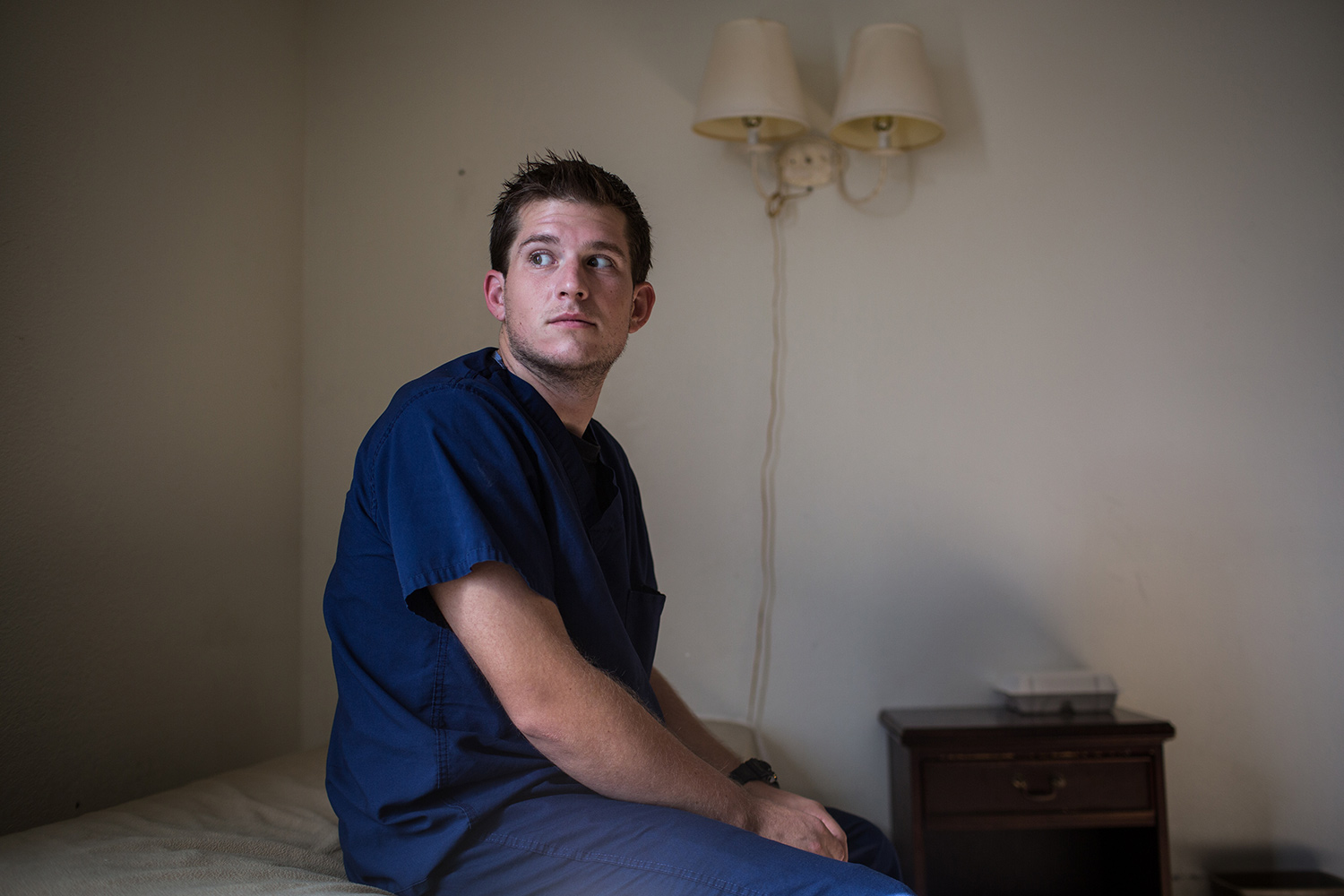
Americans aren’t just snapping up employees from south of the border. They’re also buying tons of illegal drugs produced there. The CIA estimates 95 percent of U.S.-bound cocaine passes through Mexico, which is also the largest supplier of methamphetamines, heroin and other opiates making their way to U.S. streets. Federal data shows heroin overdoses have increased sixfold since 2001.
Many heroin users start out on painkillers provided by U.S. doctors, 99 percent of whom say they prescribe highly addictive opioids for more than the recommended three days.
Samuel Birdsong of Corpus Christi started shooting heroin after first getting hooked on hydrocodone that doctors prescribed after he had his wisdom teeth taken out.
“It became harder to get the pills than the heroin. I switched over to that,” the 27-year-old told the Tribune hours after checking into a detox clinic. “It was way easier and cheaper.”
But while Birdsong ultimately got treatment with the state's help, many Texans can't get help kicking addictions.
An estimated 1.6 million Texans suffer from addiction, according to the state’s Department of State Health Services. But only about 6 percent of those who can’t afford drug treatment on their own are getting help from the state.
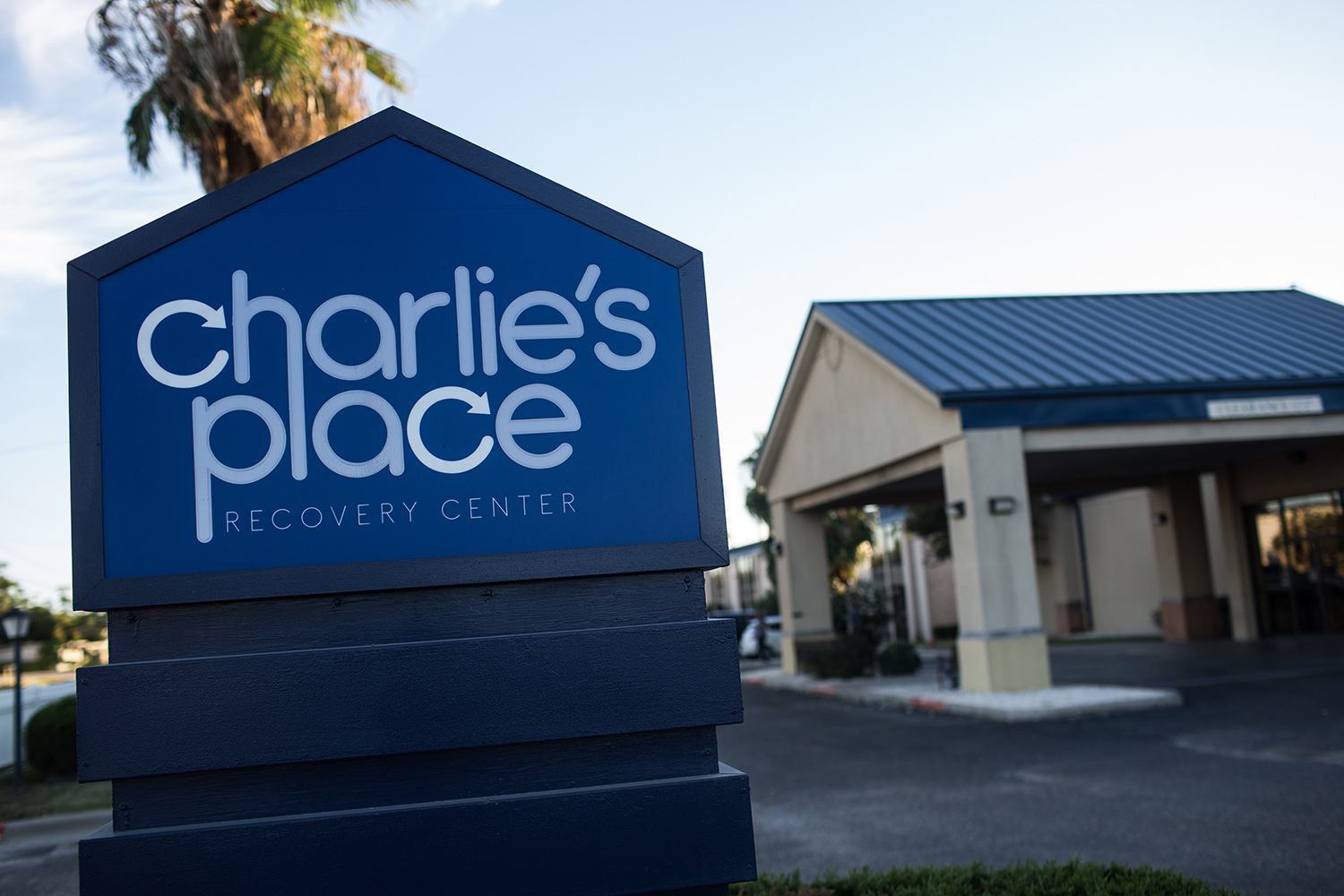
The state's current budget set about $400 million aside for substance abuse programs from the general revenue funds, but nearly $300 million of it went to jails and prisons, leaving little for addicts not behind bars.
The state put about $90 million into voluntary treatment services funded by the Department of State Health Services — little more than is required to qualify for federal substance abuse dollars, which pads the coffers for voluntary treatment with $236 million.
Still, voluntary treatment programs outside of the criminal justice system are left scrambling for money, ultimately resulting in a lack of beds and long wait times.
The chief government response to the nation’s drug problem has been incarceration. The United States locks up more people than any other country by far, and from 1975 to 2002 the number of people incarcerated for drug offenses went up by more than 1,000 percent (compared to 400 percent for all offenses), wrote Kelly, the UT-Austin professor, in his book "Criminal Justice at the Crossroads."
While policy makers in Texas mandated drug diversion courts to get addicts out of the standard criminal justice context and into treatment and alternative punishment programs, they’ve provided only 10 percent of the capacity needed to handle the caseload, Kelly said. As a result, the criminal justice system “becomes the repository for drug addicts, people who have substance abuse disorders, people who have mental health disorders,” he said.
“Addiction, dependence and abuse — those are the kinds of things that feed the demand in this country,” Kelly said. “Putting our head in the sand and thinking that’s going to stop by controlling the supply is ludicrous from a clinical perspective, from a policy perspective, even from a political perspective because how can anybody with a straight face look at our drug policy and say this has been a good thing?”
Selling guns down south
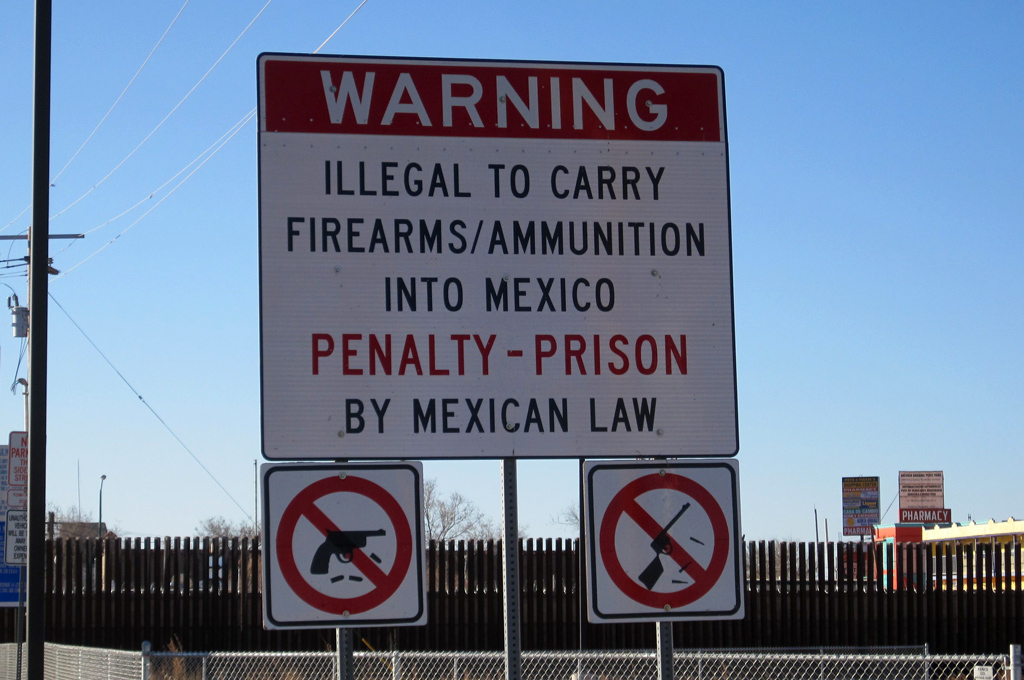
It’s not only the northbound traffic of people and drugs that fuels chaos and violence along the southern border. The United States is a major supplier of the guns smugglers are using to protect their illicit loads.
Texas has been a major supplier of weapons used in crimes in Mexico, according to the Government Accountability Office, the congressional watchdog over the federal government.
From 2009 to 2014, more than 73,600 guns seized in Mexico were from the United States, according to a 2016 report from the GAO. More than 13,600 were confirmed by the Bureau of Alcohol, Tobacco, Firearms and Explosives to have originated in Texas. But that figure could be higher — the report also states that because of factors like altered serial numbers on weapons and incomplete information on records, the states of origin could only be traced for about 45 percent of the U.S. total.
Some of the weapons are stolen and smuggled south, but most are purchased by "straw buyers" at retail gun stores, pawn shops or gun shows that — at least in Texas — occur weekly in major cities like Houston, Dallas and San Antonio.
Gun control proponents blame what they call the “gun-show loophole” — a gray area in federal law they say allows gun sellers to skirt federal regulations and sell without a license. The loophole also lets buyers purchase myriad weapons without being subject to a background check.
But the Texas State Rifle Association, the state affiliate of the National Rifle Association, calls the loophole a myth. Justin Williamson, a Texas State Rifle Association spokesman, told the Tribune that the U.S. Bureau of Alcohol, Tobacco, Firearms and Explosives requires dealers who want to sell their guns at shows to have a federal license to sell guns. That license also requires the seller to run background checks, he said.
However, according to the GAO, buyers at makeshift gun shows, flea markets or those who sell through classified ads or private-party Internet postings are the main offenders.
Convincing lawmakers to scale back gun rights in Texas because of the connection to violence in Mexico has been, so far, a nonstarter. In fact, lawmakers reversed course when, in 2015, they expanded gun rights by passing laws allowing 21-year old college students to carry weapons on some college campuses and licensed carriers to tote their guns in plain sight, a practice commonly referred to as open-carry.
Travis Putnam Hill and Eleanor Dearman contributed to this report.
This story is part of The Texas Tribune's yearlong Bordering on Insecurity project.
Disclosure: The University of Texas at Austin has been a financial supporter of The Texas Tribune. A complete list of Tribune donors and sponsors can be viewed here.
Information about the authors
Learn about The Texas Tribune’s policies, including our partnership with The Trust Project to increase transparency in news.
/https://static.texastribune.org/media/profiles/Jay_at_Cloak_TT.jpg)
/https://static.texastribune.org/media/profiles/04_Jolie_McCullough_MG.jpg)
/https://static.texastribune.org/media/profiles/Julian_gt6QdKD.jpg)